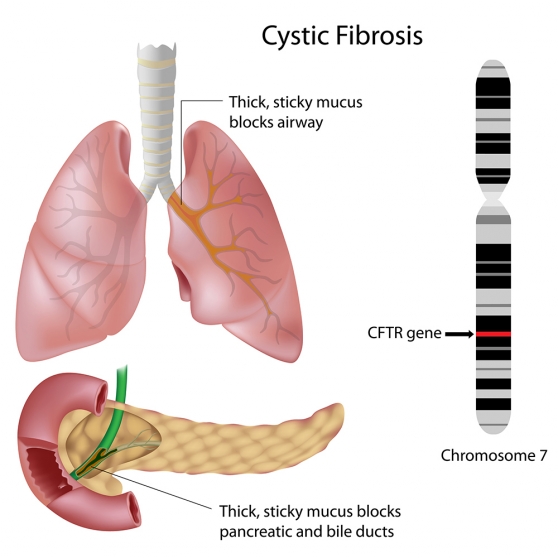Cystic Fibrosis 101
CF is passed down genetically through two faulty genes — one from each parent. These mutated genes change a protein that regulates the movement of salt in and out of the body’s cells. The type of mutation determines the severity of CF. Because it’s an inherited disease, newborns can be tested for CF. The test involves checking the newborn’s blood, sweat, and genes. The blood is tested for higher than normal levels of immunoreactive trypsinogen (IRT), which is a chemical released by the pancreas. At one-month-old, a baby’s sweat can be tested for higher than normal levels of salt and the blood can again be tested for the genes responsible for CF.
Reviewed by:
Review Date:
September 1, 2015Citation:
NIH, "What Is Cystic Fibrosis?" The Cystic Fibrosis Foundation, "About Cystic Fibrosis" Mayo Clinic, "Cystic fibrosis" dailyRx, "Cystic Fibrosis Center" dailyRx News, "Novel Cystic Fibrosis Rx Approved" Image courtesy of Mateusz Żogała | Dreamstime.com Image courtesy of Rob3000 | Dreamstime.com Image courtesy of Alila07 | Dreamstime.com Image courtesy of Claudiu Marius Pascalina | Dreamstime.com Image courtesy of Andrey Popov | Dreamstime.com Image courtesy of Rancz Andrei | Dreamstime.com Image courtesy of Bogdan Hoda | Dreamstime.com
Last Updated:
September 24, 2015
